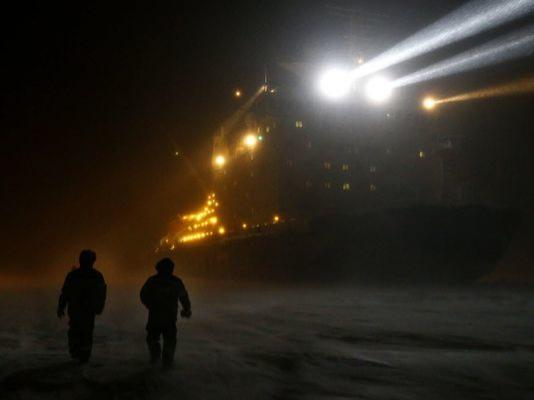
GAZPROM'S FINE LINE

European Commission indicted Gazprom last week for exploiting its stranglehold on eastern Europe's gas supply to charge "unfairly high" prices.
However, given the inherent difficulties in determining a "fair" price, economists warn that Margrethe Vestager, the competition commissioner, is walking a fine line between punishing illegitimate behaviour and meddling with the smooth functioning of a market economy.
"Antitrust law is about increasing or preserving competition to reach a fair price," says Mario Mariniello, a fellow at Bruegel, a European think-tank. "But setting a fair price is delicate ground where the European Commission would normally avoid to go."
Brussels has not shied away from heavyweights such as General Electric, Microsoft and, more recently Google. But it has found charges of "excessive pricing", as they are known in economist parlance, among the most difficult, "and that is the reason we rarely, if ever, pursue them", says one EU official.
In the case of Gazprom, the commission has found that the Russian energy company charges different prices across the EU. Lithuania, for instance, at times pays a third more than Germany.
But experts say prices can vary across countries for a number of reasons, including distribution costs, the size of the market and the presence of other suppliers.
"To prove that the price was excessive the commission needs to go around Europe looking for contracts struck in the same year with the same gas volumes," says Anna Creti, a competition economist at Université Paris Dauphine. "This will be very difficult."
Lawyers typically refer to a precedent set in a 1970s case involving United Brands, the banana company, which Brussels found guilty of charging excessively high prices in some countries. The European Court of Justice upheld the broad thrust of the case but struck down the decision on exploitative pricing, arguing that the commission had to compare prices with the company's cost structure.
The commission appears to have learnt the lesson and, in last week's case, tried to compare prices with the costs facing Gazprom. But those familiar with the investigation acknowledge the difficulty of finding and defining the appropriate benchmark. Moreover the commission is loath to put itself in the position of enforcing a decision that makes it a de-facto price regulator.
Economists also warn that intervening once a contract has been sealed risks discouraging corporate investment in infrastructure.
"If you set a fair price which is below the price charged in a market, you risk distorting how rewards are awarded to investors," says Mr Mariniello. "This can reduce the incentive to invest."
Other competition experts believe there are exceptional circumstances in which antitrust authorities have a right to challenge the prices set by monopolies, particularly when they sense there may be other abuses at play.
This is the case for Gazprom, which the commission has also accused of stopping countries from reselling gas abroad and blocking the emergence of other gas supplies.
"When you also have exclusionary abuses, it makes more sense to talk about excessive pricing," says Alexandre De Streel, professor of European law at the universities of Namur and Louvain. "With a very strong proof of exclusionary abuses, then the case is not that weak."
Crucially, this position appears to be shared by Massimo Motta, the commission's chief competition economist, in "Excessive Pricing in Competition Law: Never say Never?", an article published in 2007 with Mr De Streel. In the article, the academics write that while "extreme caution should be exercised in the use of excessive pricing actions [ . . .] there may be some very exceptional circumstances where such actions may be justified".
It is also possible that the commission is playing a political game in an attempt to strengthen the negotiating position of smaller member states vis-à-vis Gazprom at a time of tense relations between the EU and Russia.
"In pure economic terms, the commission's decision [on excessive pricing] is hard to justify," said Ms Creti. "But there may be a mixture of political positioning and signals against Gazprom, especially with respect to what will happen in the coming winter."
Others believe this may be the start of a negotiation. "Maybe the European Commission is pushing Gazprom to make a proposal on price and then decide," says Mr Mariniello. "It is far easier to say if a price is unfair than to determine what is fair."
ft.com





